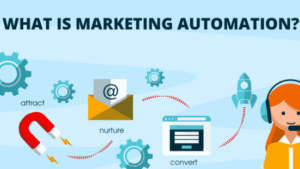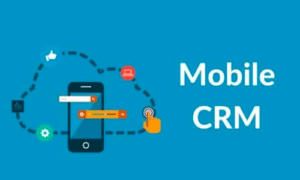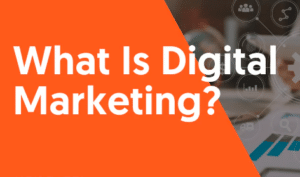crm.klikjabar.id – 3 Types of CRM Software – In today’s fast-paced and highly competitive business landscape, maintaining strong relationships with customers is vital for long-term success. Customer Relationship Management (CRM) software has emerged as a game-changer in helping businesses effectively manage and nurture these relationships.
In this comprehensive guide, we will delve into the three types of CRM software, exploring their functionalities, benefits, and how they can elevate your customer engagement to new heights.
1. On-Premise CRM Software: The Power of Local Control
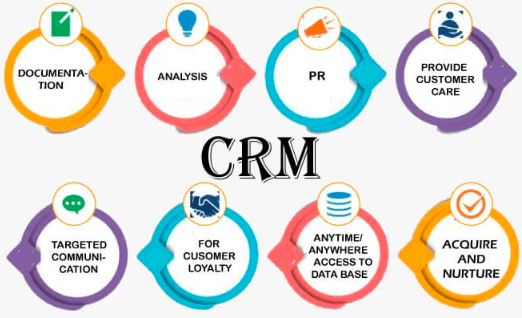
On-Premise CRM software refers to a traditional setup where the CRM system is installed on the company’s own servers and infrastructure. This type of CRM offers a high level of control and customization, making it an ideal choice for larger enterprises with complex data handling needs.
Advantages of On-Premise CRM Software
- Complete Data Control: With On-Premise CRM, your sensitive customer data remains in-house, providing you with full control over its security and accessibility.
- Customization Capabilities: Tailor the CRM system to your specific business processes, ensuring seamless integration with existing workflows.
- Enhanced Security: On-Premise CRM reduces the risk of data breaches by keeping customer information within your secure network.
- Robust Reporting: Generate detailed and custom reports that provide valuable insights into your business performance.
Disadvantages of On-Premise CRM Software
- High Initial Costs: Setting up and maintaining the necessary infrastructure can be a significant investment.
- Limited Accessibility: Accessing the CRM system outside the office may require additional setup and security measures.
- Upgrades and Maintenance: Ongoing updates and maintenance are solely the responsibility of your IT team.
2. Cloud-Based CRM Software: Embracing Flexibility and Mobility
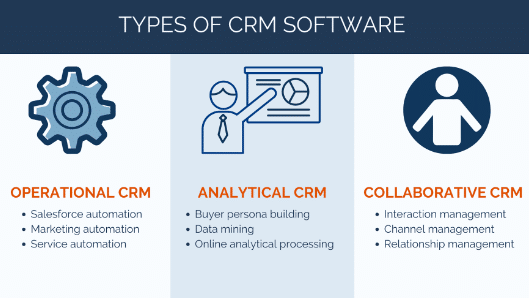
3 Types of CRM Software, also known as Software-as-a-Service (SaaS) CRM, operates on remote servers hosted by a third-party provider. This type of CRM offers unparalleled flexibility and accessibility, making it a popular choice for businesses of all sizes.
Advantages of Cloud-Based CRM Software
- Easy Accessibility: Access your CRM data from anywhere with an internet connection, empowering your team to work on the go.
- Cost-Effective: Cloud-based CRM eliminates the need for significant upfront investments in infrastructure.
- Automatic Updates: Enjoy seamless, automatic updates from the CRM provider without the need for manual installations.
- Scalability: Easily scale your CRM resources up or down based on your business needs.
Disadvantages of Cloud-Based CRM Software
- Data Security Concerns: Some businesses may be cautious about storing sensitive data on external servers.
- Internet Dependency: Cloud-based CRM requires a stable internet connection for uninterrupted access.
- Limited Customization: While most cloud-based CRMs are highly customizable, they might not match the level of control offered by On-Premise solutions.
3. Mobile CRM Software: Empowering Sales on the Go
In the era of smartphones and tablets, Mobile CRM software has become increasingly relevant. This type of CRM enables sales representatives and field agents to access customer data and manage interactions in real-time, optimizing productivity and efficiency.
Advantages of Mobile CRM Software
- Real-Time Updates: Stay updated on the latest customer information, activities, and interactions while on the move.
- Improved Sales Performance: Empower your sales team to close deals faster and more effectively with access to critical data at their fingertips.
- Enhanced Collaboration: Facilitate seamless collaboration among team members, no matter their physical location.
- Personalized Customer Interactions: Use Mobile CRM to provide personalized experiences, building stronger customer relationships.
Disadvantages of Mobile CRM Software
- Device Compatibility: Ensuring compatibility with various mobile devices may require additional testing and development.
- Security Risks: The use of mobile devices may expose the CRM data to potential security threats.
- Connectivity Issues: Poor internet connectivity can hinder access to CRM data, especially in remote areas.
FAQ’s
Q: What is the main difference between On-Premise and Cloud-Based CRM software?
A: The primary difference lies in where the CRM system is hosted. On-Premise CRM is installed on the company’s own servers, while Cloud-Based CRM operates on remote servers hosted by a third-party provider. On-Premise CRM offers greater control and customization, whereas Cloud-Based CRM provides easy accessibility and scalability.
Q: Can Mobile CRM software be used offline?
A: Yes, many Mobile CRM software solutions offer offline capabilities, allowing users to access and update data even without an internet connection. Once the device is reconnected to the internet, the data is synchronized with the central CRM database.
Q: Is Mobile CRM software suitable for small businesses?
A: Absolutely! Mobile CRM is beneficial for businesses of all sizes. It empowers sales representatives and field agents to stay connected and manage customer interactions on the go, enhancing productivity and customer engagement.
Q: What security measures should be considered when using Cloud-Based CRM?
A: When opting for Cloud-Based CRM, ensure that the provider employs robust security protocols, data encryption, and regular backups. Additionally, implement strong user authentication and access control to safeguard sensitive customer information.
Q: Can I migrate from one type of CRM to another?
A: Yes, CRM migration is possible, but it requires careful planning and execution. The process involves transferring data, customizations, and configurations from the current CRM to the new one. Seeking assistance from CRM experts can streamline the migration process.
Q: Is it possible to integrate Mobile CRM with other business tools?
A: Yes, many Mobile CRM solutions offer integration capabilities with various business tools like email clients, project management software, and marketing automation platforms. Integration ensures a seamless flow of data and enhances overall productivity.
Conclusion: Embrace the Power of CRM Software
In today’s fast-paced business environment, nurturing strong customer relationships is essential for sustainable growth and success. The 3 Types of CRM Software—On-Premise, Cloud-Based, and Mobile—each offer unique advantages that cater to different business needs.
On-Premise CRM provides full control and customization for large enterprises, while Cloud-Based CRM offers flexibility and cost-effectiveness for businesses of all sizes. Mobile CRM empowers sales teams with real-time data access and enhanced collaboration, making it a valuable tool for sales on the go.
Selecting the right CRM software is a critical decision that can transform the way you interact with your customers. Understanding the specific requirements of your organization and considering factors like data security, accessibility, and scalability will help you make an informed choice.
By leveraging the power of CRM software, you can streamline your customer relationships, improve productivity, and create memorable experiences that will drive your business towards greater heights of success.
